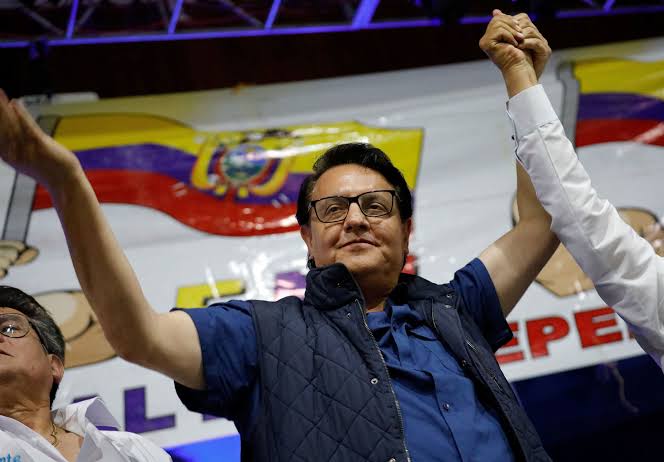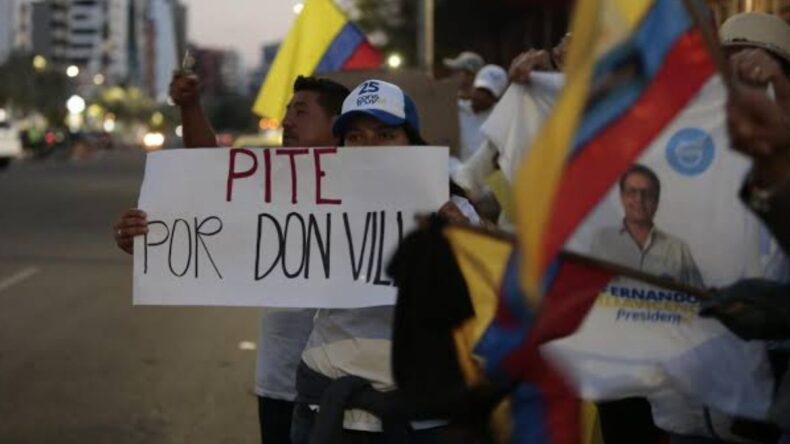
In a significant development that has raised concerns over escalating violence in Ecuador, authorities have disclosed that the six suspects apprehended in connection with the assassination of Ecuadorian presidential candidate Fernando Villavicencio are Colombian nationals and affiliated with criminal gangs. The killing of Villavicencio, a prominent anti-corruption advocate and lawmaker, occurred during a campaign rally in the capital city of Quito. The incident has ignited debates about the country’s security crisis and prompted calls for immediate action to address the spiralling violence.
Anti-Corruption Campaigner’s Tragic Assassination
Fernando Villavicencio, a staunch critic of corruption and drug-related violence in Ecuador, was shot dead at a campaign event just ten days before the scheduled first round of the presidential election. The 59-year-old’s campaign had centred on promises to tackle crime and corruption, responding to the surge of violence that has plagued the country in recent years due to drug trafficking and criminal rivalries.
Colombian Suspects and Organized Criminal Ties
Ecuador’s Interior Minister Juan Zapata confirmed that the arrested suspects are members of organized criminal groups, and he later revealed that they are Colombian nationals. While preliminary investigations have pointed to these suspects, the exact nationality of the alleged shooter remains unclear. Authorities conducted raids that yielded a cache of weapons, ammunition, and vehicles believed to have been utilized by the suspects in the crime.
Presidential Response and International Outrage
In the wake of Villavicencio’s assassination, Ecuador’s President Guillermo Lasso has requested assistance from the US Federal Bureau of Investigation (FBI) and declared a state of emergency for 60 days. The President also initiated a nationwide deployment of armed forces and announced three days of national mourning. The incident has triggered widespread condemnation, with global entities including the United Nations, the United States, and the European Union expressing their outrage.
Escalating Violence and a Nation in Crisis
Former Ecuadorian Vice President and current presidential candidate Otto Sonnenholzner expressed his deep concern about the escalating violence within the country. He characterized the current level of violence as unprecedented, emphasizing that the situation demands swift and concrete governmental action. Ecuador, which once enjoyed relative peace, is grappling with a deteriorating security crisis fueled by drug trafficking and clashes among criminal groups.
Struggle for Control and Turf Wars
Ecuador’s security crisis has manifested most prominently on its Pacific coast, where criminal organizations vie for control over drug distribution networks, primarily cocaine. The situation has been exacerbated by the loss of control over overcrowded prisons, leading to deadly confrontations between rival gangs. Sonnenholzner highlighted the influence of drug traffickers within various institutions, including the judiciary and local governments.
Legacy of an Anti-Corruption Advocate
Villavicencio, who began his public life as an investigative journalist, fought against corruption and abuses of power. His tragic assassination has renewed calls for addressing corruption and violence within Ecuador. While the presidential election is still scheduled to proceed on August 20, the focus remains on addressing the security crisis and ensuring a peaceful and stable future for the country.
As Ecuador grapples with the aftermath of this shocking assassination and its implications for the political landscape, the challenge of restoring order and security looms large. The pursuit of justice for Villavicencio’s untimely death and the broader fight against corruption and violence continue to be central concerns that demand collective action and collaboration on both domestic and international fronts.













